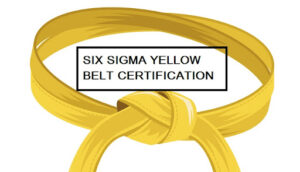Cultural Etiquette in Corporate Gifting: Do’s and Don’ts Across Countries
In today’s global business landscape, corporate gifting is more than just a goodwill gesture. It is a strategic practice that...

In today’s global business landscape, corporate gifting is more than just a goodwill gesture. It is a strategic practice that strengthens business relationships, enhances brand reputation, and shows appreciation to clients, employees, and partners. However, when working across borders, what may seem like a thoughtful gift in one culture could be seen as inappropriate—or even offensive—in another. This is where understanding cultural etiquette in corporate gifting becomes essential.
As businesses expand internationally, the role of Corporate Gift Set Manufacturers has also evolved. They now design and customize gifts to align with global preferences and cultural sensitivities. Before selecting a gift for your business partners abroad, it’s crucial to understand the do’s and don’ts of gifting in different countries.
Why Cultural Etiquette Matters in Corporate Gifting
Corporate gifts are powerful communication tools. They silently convey respect, gratitude, and partnership. But without cultural awareness, a well-intentioned gift can create misunderstandings. For example:
- A clock given in China symbolizes the end of a relationship or even death.
- A knife in Japan represents cutting ties.
- An extravagant gift in the U.S. might raise concerns about bribery.
Thus, a culturally thoughtful corporate gift reflects professionalism and strengthens long-term trust.
Do’s and Don’ts of Corporate Gifting Across Countries
Let’s explore how gift-giving is perceived in various cultures and the best practices to follow.
1. United States: Keep It Simple and Professional
- Do’s: Gifts are usually exchanged during holidays like Christmas or Thanksgiving. Branded merchandise, gourmet baskets, and personalized stationery are popular.
- Don’ts: Avoid overly expensive gifts as they may be perceived as bribery. Stay away from personal items like perfumes or clothing.
Tip: Companies often source from Corporate Gift Set Manufacturers who create customized yet professional gift sets aligned with U.S. corporate norms.
2. Japan: Presentation is Everything
- Do’s: Japanese culture values modesty and etiquette. The way a gift is wrapped is as important as the gift itself. Gifts are exchanged using both hands as a sign of respect.
- Don’ts: Never gift items like knives or scissors, as they symbolize breaking ties. Avoid gifts in sets of four, as the number is linked to death.
Tip: Thoughtful packaging, attention to detail, and practicality are key when selecting gifts for Japanese partners.
3. China: Symbolism Matters
- Do’s: Red, gold, and yellow symbolize prosperity and luck. Tea, fruits, and fine alcohol are well-received. Group gifts are also common.
- Don’ts: Avoid clocks, umbrellas, or anything associated with separation or bad luck. Don’t give gifts in sets of four.
Tip: Always present the gift with both hands, and expect it may be politely declined at first before being accepted.
4. India: Respect Traditions
- Do’s: Gifts are often exchanged during festivals such as Diwali. Sweets, dry fruits, and hampers are popular choices. Thoughtful branded corporate gifts also leave a good impression.
- Don’ts: Avoid leather items if gifting to vegetarian or religious partners. Stay away from alcohol unless you are certain it is acceptable in that community.
Tip: Personalized corporate gift sets from local manufacturers are ideal, as they can combine utility with cultural sensitivity.
5. Middle East: Generosity is Valued
- Do’s: Hospitality is central to Middle Eastern culture. High-quality pens, perfumes, and luxury dates are appreciated. Gifts should be presented with the right hand or both hands.
- Don’ts: Avoid alcohol or pork products, as they may offend religious sentiments. Steer clear of gifts with political or religious symbolism.
Tip: Always check whether the recipient’s company has a gift policy before sending a gift.
6. Europe: Etiquette Varies by Country
- Germany: Gifts are usually given during business closures like Christmas. Practical gifts and fine wines are appreciated. Avoid overly flashy or personal items.
- France: Presentation is highly valued. Books, gourmet food, or fine pens are ideal. Don’t give chrysanthemums, as they are linked to funerals.
- UK: Modest gifts such as wine, chocolates, or office stationery are common. Avoid anything extravagant.
Tip: Across Europe, handwritten notes accompanying gifts often leave a lasting impression.
7. Latin America: Relationships Come First
- Do’s: In countries like Brazil and Mexico, gifts are seen as a sign of friendship and partnership. Branded items, wines, and personalized gifts are appreciated.
- Don’ts: Avoid gifts in black or purple, as they are associated with mourning. Don’t rush into gift-giving at the first meeting—it’s usually reserved for established relationships.
Tip: Quality and presentation matter more than the price of the gift.
Best Practices for Choosing the Right Corporate Gift
No matter where your business partner is located, certain universal guidelines can help you navigate cultural differences.
- Research the Culture First
Spend time understanding the recipient’s traditions and preferences before finalizing a gift. - Consider Practicality
A corporate gift should be useful in everyday business or personal life. Branded office essentials, tech accessories, or desk organizers are good options. - Personalize Thoughtfully
Personalization shows effort and consideration. A gift engraved with the recipient’s initials or your company’s logo often leaves a positive impact. - Mind the Packaging
The way a gift is wrapped often says as much as the gift itself. Elegant, culturally appropriate packaging shows professionalism. - Work with Professional Manufacturers
Trusted Corporate Gift Set Manufacturers provide expertise in curating and customizing gifts that align with both brand identity and cultural values.
The Role of Corporate Gift Set Manufacturers
When businesses operate across multiple countries, the challenge lies in choosing gifts that balance cultural sensitivity with corporate branding. This is where professional corporate gift set manufacturers step in. They help by:
- Designing customized gift sets for different regions.
- Ensuring packaging aligns with cultural preferences.
- Offering sustainable, eco-friendly gifting options.
- Delivering bulk corporate gift solutions that maintain consistency across markets.
By partnering with the right manufacturer, companies can ensure their gifts are not just thoughtful but also compliant with international etiquette.
Conclusion
Corporate gifting is a timeless way to express appreciation and nurture business relationships. But in an interconnected world, cultural etiquette plays a pivotal role in making gifts truly meaningful. A gift that resonates in one culture may offend in another, so research and sensitivity are crucial.
Whether you’re sending a festive hamper to India, a carefully wrapped present to Japan, or a modest branded token in the U.S., understanding cultural nuances ensures your gesture strengthens, rather than weakens, your business ties.
And with the expertise of Corporate Gift Set Manufacturers, businesses can confidently select gifts that reflect respect, professionalism, and cultural awareness. After all, the right gift is not just about the item itself—it’s about the message it carries.



